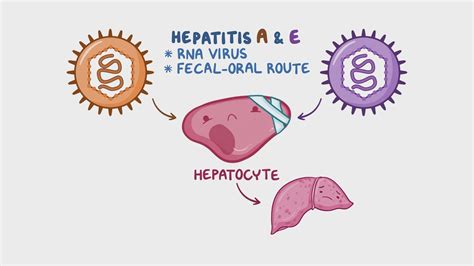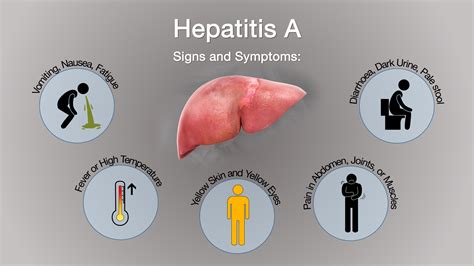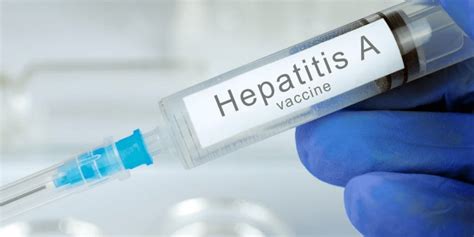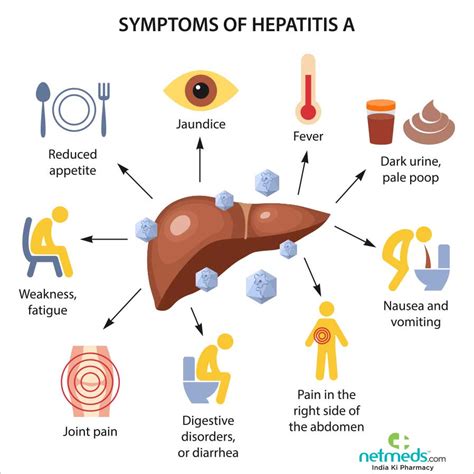Intro
Discover 5 crucial facts about Hepatitis A, a highly contagious liver infection, and learn about its symptoms, transmission, vaccination, and prevention methods to protect yourself from this viral disease.
Hepatitis A, commonly referred to as Hep A, is a highly contagious liver infection caused by the hepatitis A virus (HAV). It is one of the most common types of hepatitis and can be spread through contaminated food, water, and close contact with an infected person. Despite its prevalence, many people are not aware of the risks and facts surrounding Hep A. In this article, we will delve into the world of Hep A, exploring its causes, symptoms, prevention methods, and more.
The importance of understanding Hep A cannot be overstated. With the rise of global travel and the increasing popularity of international cuisine, the risk of contracting Hep A has never been higher. Furthermore, Hep A can have serious consequences, particularly for individuals with pre-existing liver conditions or weakened immune systems. By educating ourselves about Hep A, we can take the necessary steps to protect ourselves and our loved ones from this potentially debilitating illness.
As we navigate the complexities of Hep A, it is essential to separate fact from fiction. Many myths and misconceptions surround this disease, which can lead to confusion and complacency. By examining the latest research and expert opinions, we can gain a deeper understanding of Hep A and its implications for our health. Whether you are a healthcare professional, a world traveler, or simply someone interested in learning more about this fascinating topic, this article is designed to provide you with the information and insights you need to make informed decisions about your health.
What is Hepatitis A?

Causes and Risk Factors
The primary cause of Hep A is the hepatitis A virus, which is highly contagious and can be spread through various means. Some of the most common risk factors for contracting Hep A include: * Traveling to areas with high rates of Hep A * Eating or drinking contaminated food and water * Having close contact with an infected person * Engaging in high-risk behaviors, such as sharing needles or having unprotected sex * Working in a healthcare or food service settingSymptoms of Hepatitis A

Diagnosis and Treatment
Diagnosing Hep A typically involves a physical examination, medical history, and laboratory tests, such as blood tests and liver function tests. Treatment for Hep A usually focuses on relieving symptoms and supporting the body's natural recovery process. In some cases, hospitalization may be necessary to manage severe symptoms and prevent complications.Prevention and Vaccination

Benefits of Vaccination
The benefits of getting vaccinated against Hep A are numerous and include: * Protection against the disease * Reduced risk of complications and severe symptoms * Prevention of outbreaks and transmission to others * Peace of mind when traveling or engaging in high-risk activitiesComplications and Long-Term Effects

Managing Complications
Managing complications of Hep A requires close medical attention and may involve: * Hospitalization * Medications to manage symptoms and prevent further liver damage * Lifestyle changes, such as avoiding alcohol and maintaining a healthy diet * Regular follow-up appointments with a healthcare providerGlobal Impact and Epidemiology

Current Research and Developments
Researchers are continually working to improve our understanding of Hep A and develop new treatments and prevention methods. Some of the current research focuses on: * Developing more effective and targeted vaccines * Improving diagnostic tests and detection methods * Understanding the genetic mechanisms of Hep A * Developing new treatments for complications and long-term effectsConclusion and Final Thoughts

We invite you to share your thoughts and experiences with Hep A in the comments below. Have you or someone you know been affected by Hep A? What steps have you taken to prevent the disease? Let's work together to raise awareness and promote education about this important health topic.
What is the most effective way to prevent Hepatitis A?
+The most effective way to prevent Hepatitis A is through vaccination. The Hep A vaccine is highly effective in preventing the disease and is recommended for all children, travelers to high-risk areas, and individuals with high-risk behaviors.
How long does it take to recover from Hepatitis A?
+Recovery time from Hepatitis A can vary depending on the severity of the disease and the individual's overall health. Most people recover within 2-6 months, but some may experience prolonged symptoms or complications.
Can Hepatitis A be spread through kissing or other forms of close contact?
+Yes, Hepatitis A can be spread through close contact with an infected person, including kissing, sharing personal items, or engaging in other high-risk behaviors.
